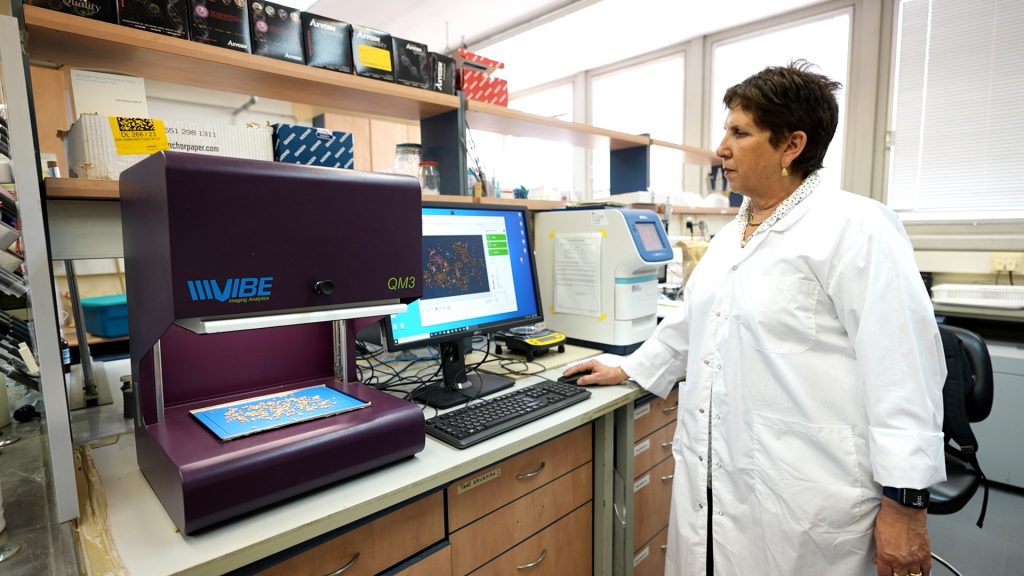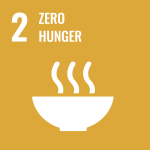 Goal 2: Zero Hunger
Goal 2: Zero Hunger
END HUNGER, ACHIEVE FOOD SECURITY AND IMPROVED NUTRITION AND PROMOTE SUSTAINABLE AGRICULTURE
Research
Wild Cereal Gene Bank
Led by Prof. Assaf Distelfeld, Prof. Tzion Fahima, and Dr. Tamar Krugman, The Wild Cereal Gene Bank at the Institute of Evolution provides unique gene pools of ~17,000 wild wheat and barley accessions from Israel. Their work offers solutions for improving disease and drought resistance, as well as grain yield and quality. These enable the reduction of chemicals and minerals and expand cultivation into regions suffering from climate change.
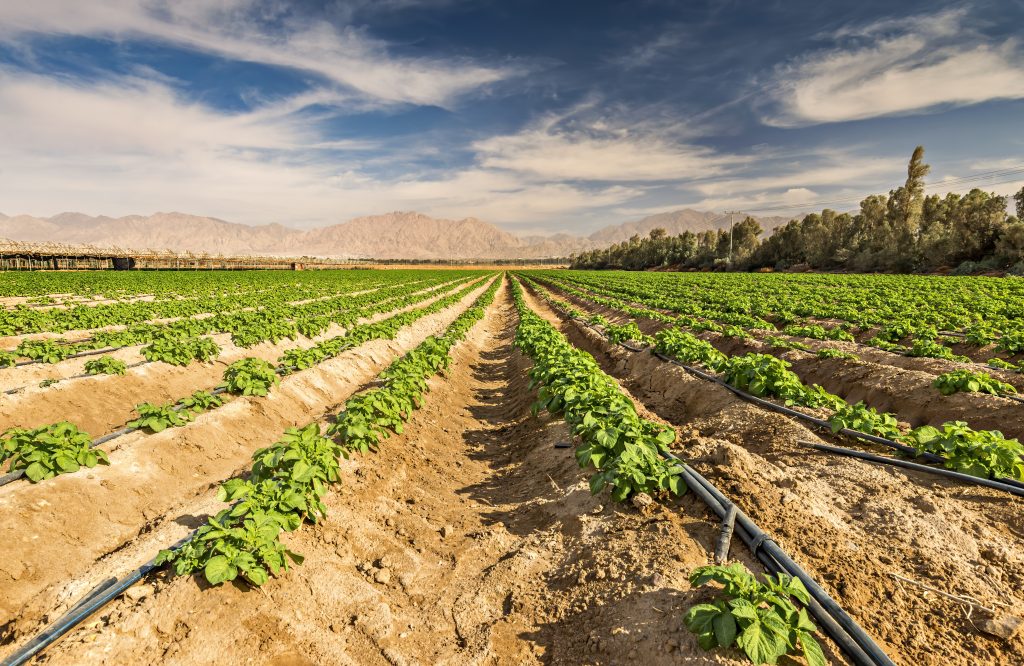
Ancient Grapes of the Negev
Among UofH’s winning ERC projects with great potential for global impact is the work of Prof. Guy Bar-Oz from the Faculty of Humanities aimed at restoring heritage grape cultivars in the Negev and reviving an ancient Byzantine grape variety. This work is a response to global warming, and of vital importance in the quest to expand our search for authentic local ancient breeds that were cultivated and bred for centuries in dry arid areas.
Teachings of Ancient Judean Desert Food-Webs
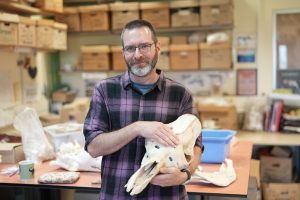
Among UofH’s winning ERC projects with great potential for international impact is Dr. Nimrod Marom’s work on food security, which merges archaeology and biology to investigate human-environment interactions in antiquity and the effects on ancient food-webs in the fragile Judean Desert ecosystem.
Public Engagement
COVID-19: Combatting Increases in Food Insecurity
As Director of the Nutrition Department in the Ministry of Health, Dr. Ronit Endevelt of the Faculty of Social Welfare and Health Sciences, leads the formulation of nationwide policies to combat food insecurity that intensified during COVID-19 as unemployment grew, challenges arose with food import chains, which were compounded by a lack of acute governmental support for the local agriculture sector.
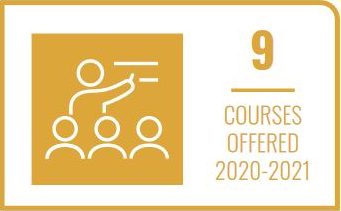
Leading National Food Security Council
Elected by the Minister of Welfare and Social Security as new Chairman of the Food Security Council, Prof. Roni Strier of the School of Social Work is leading efforts to resume council activity after four years of hiatus. In the shadow of coronavirus, the council hopes to establish an accurate database, venture into the field to meet those suffering, and then apply this knowledge to create a government framework to combat the phenomenon.
Learning and Students
Dieticians for the Disadvantaged
Students in the School of Public Health study nutritional challenges that affect disadvantaged populations in Israel, and around the world, through the Dietitians for Disadvantaged Populations course. The course scrutinizes international intervention programs and guides students as they engage with local service organizations.
Cross-sector Field Camp: Agriculture and Environment
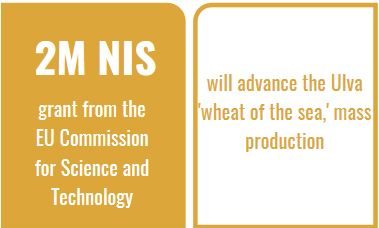 According to the International Food and Agriculture Organization, agricultural production must increase by 60% to meet global needs in 2050. Given population growth and climate change, there is a pressing need for industry to help agronomists prepare. To address these issues the School of Environmental Sciences held a field research camp on Agriculture and Environment that was open to doctoral candidates from the UofH, as well as partnering research institutes and key personnel from the Ministry of Agriculture.
According to the International Food and Agriculture Organization, agricultural production must increase by 60% to meet global needs in 2050. Given population growth and climate change, there is a pressing need for industry to help agronomists prepare. To address these issues the School of Environmental Sciences held a field research camp on Agriculture and Environment that was open to doctoral candidates from the UofH, as well as partnering research institutes and key personnel from the Ministry of Agriculture.
Operations
Low Cost Cafeteria
The Menza cafeteria operated by the UofH Student Union was established in order to serve low-cost healthy food to students.
